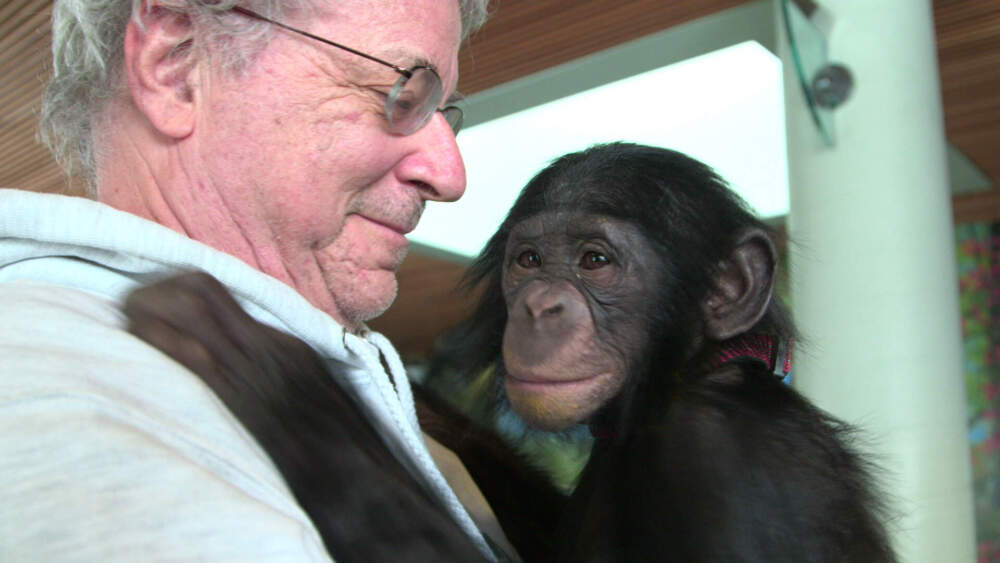Advertisement
Commentary
Steven Wise fought tirelessly for animal personhood. We humans are better for it

Last year, a tiny California hamlet took a giant leap beyond legal tradition. The Ojai City Council passed the country’s first ordinance giving habeas corpus rights to elephants, outlawing their captivity.
Granting four-legged behemoths a right heretofore restricted to humans gladdens me, and not just for the fact that I’m an animal-loving vegan. The California councillors drafted their law with help from the Florida-based Nonhuman Rights Project (NhRP), founded by lawyer Steven Wise. For more than a decade, Wise pushed the Sisyphean rock of a radical argument — elephants and chimpanzees deserve legal personhood and freedom before various courts — only to have judges knock it downhill.
He never gave up, and the Ojai vote afforded him a triumph before he died earlier this month at the too-young age of 73.
I first met Wise in the 1990s as a reporter covering his animal rights course at Vermont Law and Graduate School. In those days, I wasn’t sold on veganism, let alone animal personhood. It took boning up on industrial husbandry and on Wise’s arguments to sway me on both. Two decades later, as a writer for Boston University, I again profiled Wise, an alumnus of BU’s law school. This time, I trailed him to a Manhattan courthouse, where skeptical judges of the state’s Appellate Division, First Judicial Department pelted him with questions about granting legal personhood to two chimpanzees.
You may scoff at his plea, as did those judges and every other court Wise appeared before. But it emanated from compassion, a virtue many people today withhold from nonhuman animals and their fellow Homo sapiens. Consider how factory farms practice legalized animal cruelty or political leaders conceal razor wire underwater to bloody unwary migrants. Amid this indifference to, or infliction of, suffering, Wise modeled a life, to steal a line, “hectic with public concern.”
His search for justice began with his protesting the Vietnam War as an undergraduate. After BU, he practiced criminal defense law until he read “Animal Liberation.” That 1975 book argued that, while animals might not be capable of producing a Mozart or Martin Luther King, Jr., they are capable of suffering, and so deserve rights. The manifesto made Wise a vegetarian and an animal welfare lawyer.
It cheers me that Wise lived to see his compassion take root, if not in the law, then in more fertile soil.
He was no dour, finger-wagging scold. He kept unflappable before his appellate inquisitors in New York, armed with extensive homework to answer their challenges: Animals were given lawyers and tried in medieval courts for hurting people or gobbling crops. Other nonhumans have been granted personhood rights before, from business partnerships to sailing ships, which 19th-century courts deemed responsible for accidents when their owners were absentee. Personhood wouldn’t be conferred indiscriminately; only a few species are cognitively advanced enough to merit it, as they, like humans, are “autonomous,” possessing the ability to contemplate, and suffer from, unending confinement in a cage. (Antsy veterinarians fretted that a win by Wise might open them to malpractice suits by Rover’s owners.)
Wise kept his sense of humor outside the courtroom, too. During a 2014 appearance on “The Colbert Report,” he held his own with Stephen Colbert while discussing his efforts to secure personhood and freedom for a chimp named Tommy. If Wise prevailed, Colbert objected, “My dog can sue to get on my couch.” To which Wise offered to give his card to the canine and made a “call me” gesture. Even Colbert giggled.
Wise’s unorthodox crusade earned him major media coverage and a sympathetic documentary, “Unlocking the Cage.” On the judicial playing field, however, he advanced the ball but couldn’t reach the endzone. The NhPR filed its first cases in 2013, representing four chimpanzees in New York. Two became the first animals ever to get habeas corpus hearings. But they did not win their freedom.
In 2022, Wise had to content himself with weaning two dissenters from a majority opinion denying freedom to Happy, a Bronx Zoo elephant. In what historian Jill Lepore called “the most important animal-rights case of the 21st century,” the duo accepted Wise’s argument that humans aren’t the only rights-entitled species.
It cheers me that Wise lived to see his compassion take root, if not in the law, then in more fertile soil. The National Institutes of Health discontinued chimpanzee research, citing both chimps’ advanced cognition and the suitability of using genetically modified rodents instead. Ringling Bros. bowed to public pressure and discontinued elephant acts. (And went out of business in part because of that decision.) SeaWorld shut down its breeding of orcas after customer boycotts following questions about whether captivity drove one orca to kill two trainers.
We are diminished by Wise’s death, but we are better for his having lived. As the son of a judge, I know that some lawyers frequently enter courthouses to keep disreputable clients from being held accountable. Wise, contrarily, took the courts’ time to hold all of us to account.

